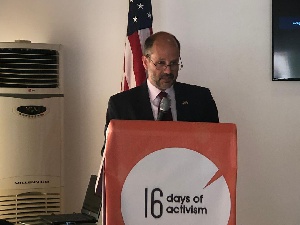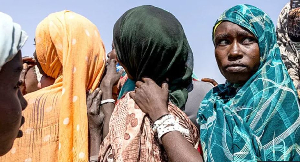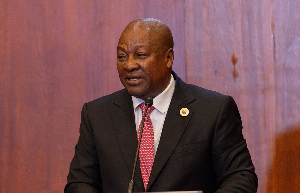“Educating young girls is only effective if we also make it okay for boys and men to embrace gender equality and reject traditions and norms that oppress girls and women,” the US Chargé d’Affaires, Christopher J. Lamora has said.
Mr Lamora was speaking at a seminar organised by the US Embassy in Accra to highlight Gender Based Violence (GBV) in the world of work and ways in which GBV limits women’s economic empowerment.
Speaking on the theme ‘Understanding the Rights of Women and Girls’, Lamora stated that women need to be empowered to support men and advocate for real change to occur.
He said: “Domestic or intimate partner violence, street harassment and violence in public spaces and sexual harassment in the workplace all have a direct negative impact on gender equality and women’s economic empowerment. Settings that permit such violence or harassment not only discourage women from work but can also result in emotional or other physical trauma that renders women less likely to go to work.”
“Majority of violent act against women are committed by men, but the vast majority of prevention efforts have historically been risk-reduction and self-defense tactics directed at women. The founders sought to change the conversation by shifting the responsibility of deterring harm away from women by focusing on promoting healthy, nonviolent masculinity,” he added.
Background on 16-Days Campaign
The 16 Days of Activism against Gender-Based Violence is a global campaign which is mobilizing millions worldwide under the theme “#SafeAtWork: End Gender-based Violence in the World of Work.”
These efforts reaffirm the enduring US commitment to preventing and responding to gender-based violence (GBV) globally.
This US Mission’s around the world are highlighting GBV in the world of work and ways in which GBV limits women’s economic empowerment.
General News of Tuesday, 4 December 2018
Source: www.ghanaweb.com













